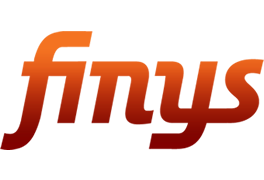To Us, HR Means Healthy Relationships
By: Kurt Diederich
The good news is we’re in the New Year. The bad news is we still have some of the challenges we had in the old year. More specifically, we have to determine whether return to office (RTO), work from home (WFH) or a hybrid model work best for our companies and for our people.
While we weren’t deliberately trying to create a new abbreviation, we were deliberately trying to create a model that varies slightly from those models and that entails the best of both and then some: We decided to call our model work from office (WFO). To us, that means we have to take care of the people who take care of our customers and our business.
Two-Way Streets
To earn the right to work here, our people have to be committed and conscientious. To earn the right have them here, we have to make sure:
- Total compensation is meaningful and competitive: The combination of salary and benefits has to attract the talent we want.
- Recognition and rewards are consistent: Performance-based reviews, rewards, and promotions have to be suitable to retain the talent we want.
- Policies and procedures are clear, current, and accessible: We can’t expect people do know what to do, what to expect, what’s acceptable, and what’s not if we don’t tell them.
- Career opportunities are clear and available: In addition to letting people know what’s expected of them, we have to let them know what’s possible for them. And we have to be engage in those conversations with them.
- They know their feedback is welcome. Employee feedback: We can’t know what our people want and need — and we can’t know what contributions they’re capable of making — if we don’t converse with them. “We’re only as good as our people” is so much more than a cliché. It has to be.
- We provide the necessary flexibility: Open-ended flex time isn’t manageable or constructive. But we give our people the time they need for family commitments, necessary appointments, vacations, and PTO. Those aren’t gifts. They’re signs of respect and appreciation for what our people do every day.
That’s Healthy
We’re successful. We’re growing. And we’re committed to making Finys a place in which people feel comfortable, fulfilled, recognized, and rewarded. Since those things are true, we believe WFO is fair and favorable for all of us. And we believe it creates healthy relationships.

